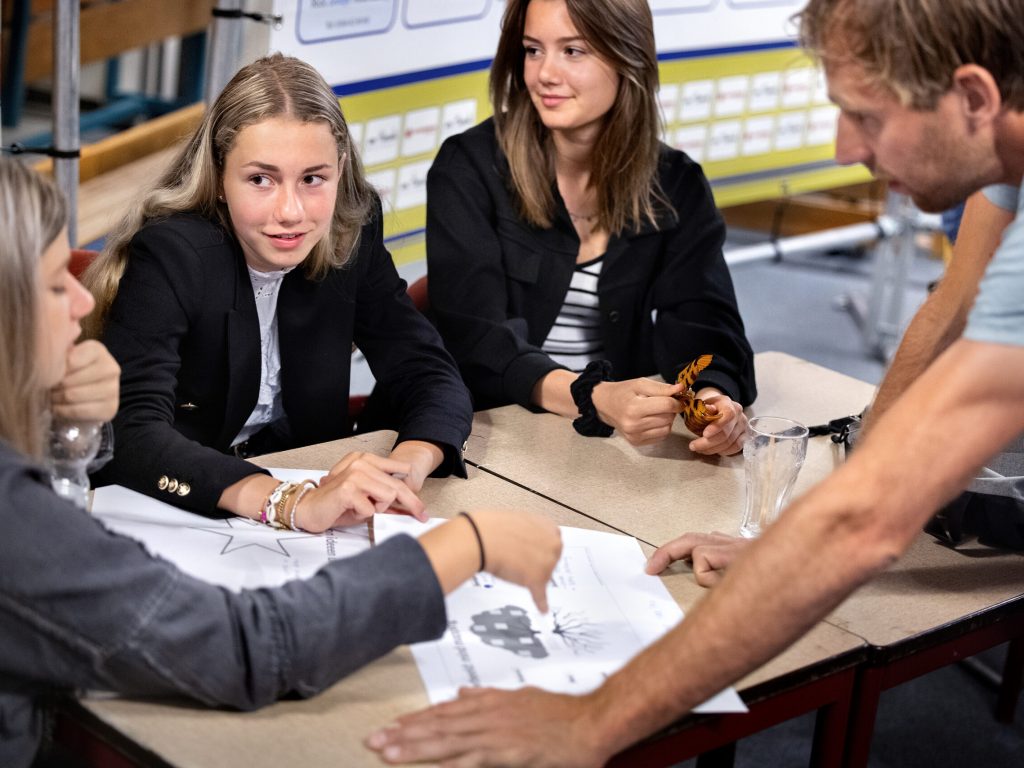“I didn’t find it difficult. It was hard but also really nice because we learned a lot and we all enjoyed talking to the partners. They were very nice people and they helped us a lot when we found something difficult.” Elin, a 13-years-old student, made it clear: working on school projects with stakeholders was more of a pleasure than a burden. And she’s not the only one to make this observation. Having the feeling of being listened to and taken into consideration were some of the main positive points raised by the students of the Junior and Senior School in Cyprus who pitched their ideas to packaging and recycling companies. On top of this, the SWOT analysis, conducted by ReSciTEG and which was employed as part of the evaluation methodology of the Schools As Living Labs project, elicited other motivational elements for students and teachers engaged in a living lab approach, such as being exposed to different career options, giving meaning to what is learned at school or building long-term relationships with professionals in fields that motivate or inspire the students.
These first pieces of evidence reinforce the importance we, Schools As Living Labs partners, place on giving context to STEM learning. And, as Claudia Aguirre who led the co-creation of the SALL methodology expressed recently, the fact that schools and students must invite external actors into their living-lab is an added value of our methodology: it should encourage everyone around the table to widen its perspective and to go off the beaten tracks. We hoped this open approach was valuable, we now have some evidence but the way ahead is still long. With schools, we continue to explore what the added value of this learning methodology can be and we evaluate the specific support participants need to rethink how they work and achieve structural changes.
Sometimes, thinking small is the best way to achieve big things
To empower teachers on how to engage with relevant stakeholders, the NEMO science museum in Amsterdam created a dedicated workshop. This workshop, based on previous literature, is a hands-on methodology designed to be used in very different contexts. It includes real-life examples and hands-on activities tested and approved by pilot schools. All SALL partners developed different approaches: ORT Israel provided intensive support to the schools by designing worksheets for the students. In Portugal, a webinar was organised by Ciência Viva, in which suggestions to engage stakeholders were worked out together with the teachers. In Spain, the University Deusto organised a business market where the schools could meet different stakeholders in the field of food systems.
Participants can pick and choose what and how they want to use them. This aspect is crucial because we learned from the pilot year that the process of stakeholder engagement is very country, school and person dependent. Aside from these varied approaches, the workshop emphasises one key aspect all users can follow, that is using your own network and local community works best when it comes to finding societal actors to collaborate with, instead of reaching out to big corporations or government institutions. Sometimes, thinking small is the best way to achieve big things!
From getting socially involved to improving existing services
Last year, 40+ schools experimented with the SALL methodology, trying to transform themselves into Living Labs where different societal actors – teachers, students, parents, and external stakeholders – collaborate to conduct active research and innovation in real-time and real-life contexts. They successfully invited 144 external stakeholders to join their living-lab project: 26% are from the private sector, 19% from the research and medical field, 16% are associations or NGOs, 13% are representatives of local government and 11% are families. They all have different motivations to join a school-based living lab, from getting socially involved in their neighbourhood to improving existing services and products.
Some of them were already deeply involved in the school with which they collaborate today within the SALL project. Annette van Baalen, from the NEMO science museum, recently met one of them: Gloria. Gloria is an entrepreneur who set up her catering business in the school building of Xplore Agora, a school based in Amsterdam. The school rents its surplus spaces to local businesses for a low price and in return, the entrepreneurs share their knowledge with the students. Gloria, who also runs the school canteen, works closely together with the students to transform the canteen into a Grand Café, open to clients outside the school. Together, they are already working on how the Café will be run, set up and decorated. According to Gloria, this collective experience is very exciting and she is looking forward to discussing with the students the new perspectives and viewpoints they will bring to her business. She finds it rewarding to understand what drives students and to pass on her knowledge. In short, she really enjoys the collaboration!
Picture credit: DigiDaan, NEMO
WANT TO BE INVOLVED IN OPEN SCHOOLING?
More than 50 schools across Europe are already implementing the Schools As Living Labs methodology, transforming their teaching approach to become open-education spaces serving the society. Our next step is to expand this community across 10 countries and 400+ schools: Croatia, Cyprus, Estonia, France, Greece, Israel, Portugal, Serbia, Spain, The Netherlands. If you want to join this open schooling movement, leave us your contact details and our national coordinators will contact you (hello@schoolsaslivinglabs.eu)

